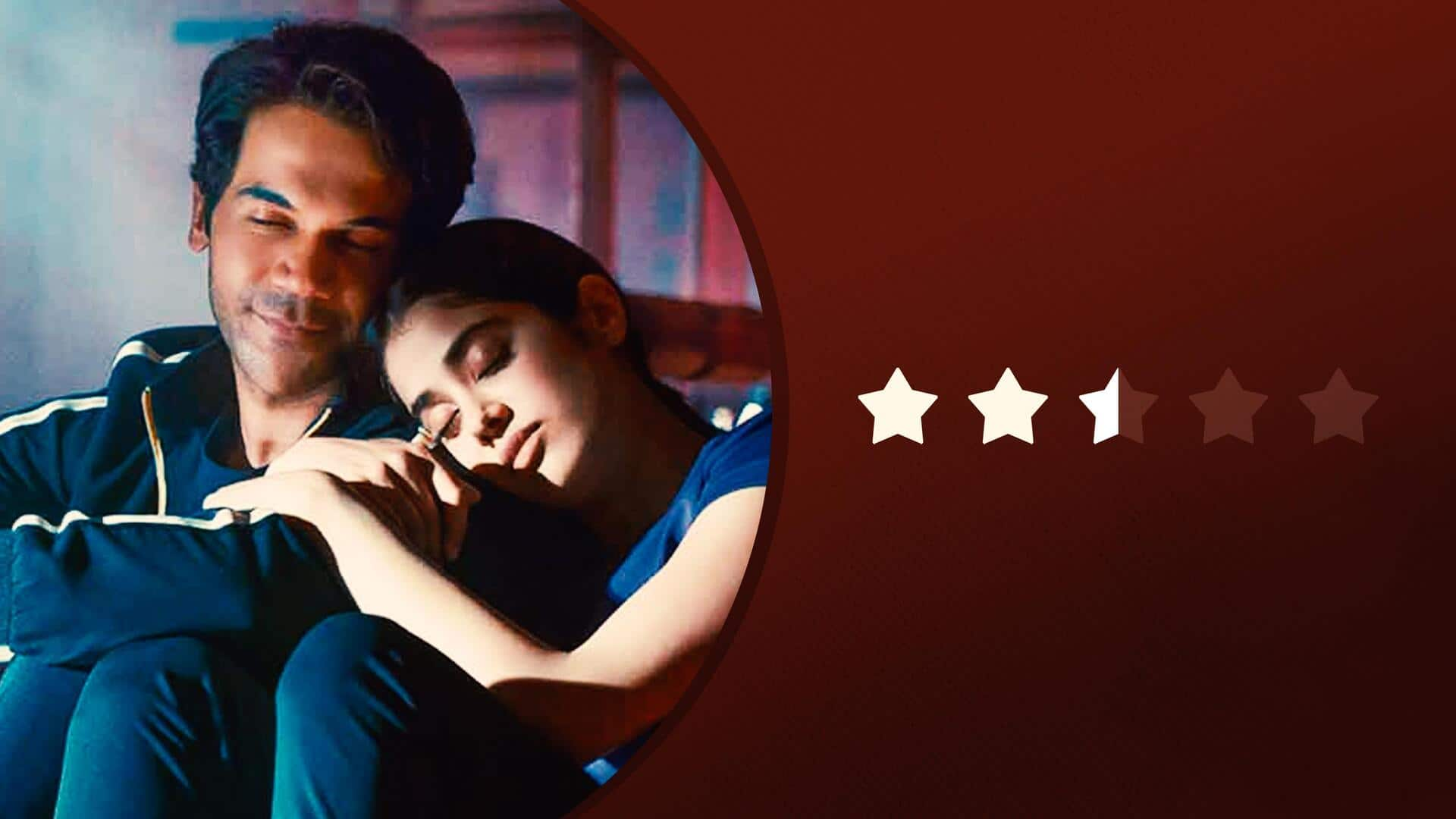
'Mr. & Mrs. Mahi' review: Rajkummar's finesse uplifts predictable drama
What's the story
After a tell-all trailer that gave away everything about the storyline, Mr. & Mrs. Mahi had a tough task at hand: could it still draw viewers in? As it turns out, the result is half-decent; the film is marinated in the usual Dharma Productions flavor and receives incredible gumption through Rajkummar Rao and Kumud Mishra, but its predictable and unrealistic storyline bogs it down.
Story
This is what happens in the story
Mahendra (Rao) has been branded a "failure" by his father (Mishra) due to his inability to make it big in cricket and his repulsion to the family business. However, when Mahendra marries Mahima (Janhvi Kapoor) and realizes her penchant for cricket, he takes it upon himself to coach her and ensure her selection in the state cricket team. Will they succeed?
#1
Positives: The pace does not sag
Coming to what works in the film's favor, director Sharan Sharma has kept the movie briskly paced and scenes flow naturally from one to another, without overstaying their welcome. Mahendra and his father's seemingly never-ending tussle and the overwhelming sense of defeat that weighs heavily on his chest are the movie's top priorities. So, early on, we get a fair idea about these characters.
#2
Mishra and Rao are a delight to watch together
Mishra and Rao's confrontational scenes are the best part of the movie, and it's always a delight to see two equally talented actors face each other off in intense scenes. Mahendra wants success less for himself and more for his father (and to get a place on a wall of fame he has built in his shop). In that, it mirrors Indian society.
#3
Does not seem to waste scenes
The central conflict of the film is established early on and very few scenes seem out of place or unnecessary, though I wish Sharma focused more on who Mahima was before she married Mahendra. Moreover, MAHM takes its time with the central couple's romance, which seems to be a fairly truthful depiction of arranged marriages. It's not rushed, and their pairing doesn't seem artificial.
#4
Negatives: You can barely see; everything is dimly lit!
An excessively heavy, depressing tone hangs heavily in the air through most of the film, and it does not help that the color grading is so off that there is no brightness or shine anywhere. The only times we see some light is when Mahima-Mahendra are out on the cricket field. Additionally, the film takes itself too seriously, and humor finds no place here.
#5
Logic dies many deaths in the project
The problems with MAMH, neatly concealed by Rao's acting caliber, start rearing their head when the track of Mahima's cricket training begins. To begin with, the entire premise is flawed—why would a doctor abandon her years of hard work and determination for a sport she enjoyed as a child? Sharma asks a lot from the viewers here, and I couldn't stomach this plot.
#6
Can Kapoor match Rao's intensity? No
Rao needed a co-actor of his potential to match him in the confrontational scenes he has with Mahima in the second half (perhaps Radhika Apte would have been an excellent choice). Kapoor seems to try and is convincing in the cricket scenes, but her limited range as an actor stands pitifully exposed in emotional sequences. Glycerine can only do so much.
#7
Forgettable secondary characters; a departure from Dharma's norms
Another problem with MAMH is the way it has no space for secondary characters except that of Mishra. It completely wastes Zarina Wahab (nothing more than a special appearance) and Rajesh Sharma's excellence is limited to a few scenes with Rao. There's another character, who's Rao's brother, but he is always kept at a distance. We know nothing about him, and neither does MAHM.
Verdict
A mixed bag through and through, it gets 2.5/5
If MAHM were a cricket player, it would be someone who can score a half-century but struggles due to mistimed shots. The heart-thumping thrill of cricket is sorely missing and the movie is predictable at all junctures. Having said that, it has some positive messaging about partnerships in relationships and commentary on Indian parenting, and on that front, it scores a home run.